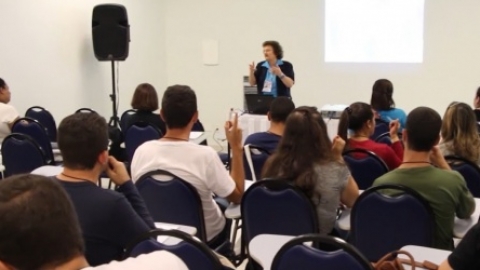Criteria that identify educommunicative experiences

Helena Corazza *
Educommunication is an area of research and applied knowledge in both informal and formal education. There are many publications, master's thesis, doctoral thesis, specialization courses on the subject. In the interrelation between Communication and Education, the nomenclatures vary, being that some are limited to media education, Media education, media literacy, Media Literacy, among others.
In 2013, Unesco published a manual containing "The Curriculum and Skills Matrix in AMI (Media Information Literacy)". What makes a difference is that some positions take into account efficiency and others the communication process, without neglecting competition and effectiveness. Educommunication dialogues with the different proposals, but its principles and methodology, in addition to the understanding and reading of the media, a critical sense, has in view the exercise of citizenship for a fraternal, supportive and transforming society of reality.
Educommunication also includes the aspect of participation, of shared and supportive management of communication resources, their languages and technologies, leading to the strengthening of the protagonism of social subjects and as a consequence to the practical exercise of the universal right to express themselves. One of the marks of Educommunication is the formation of the interlocutor subject, whether it is a student, a pastoral agent or a communication professional to appropriate theoretical and practical knowledge and thus can act in favor of communication in their environment , according to their reality and culture.
The concept of Educommunication wants to indicate a set of elements that goes beyond the media, recognized in the practices of cultural agents, as members of a new way of working on the communication and education interface. For Prof. Ismar de Oliveira Soares (2008), educommunication is like “the set of actions inherent to the planning and evaluation of communication processes, programs and products implemented with the educational intention, aimed at creating and strengthening open and communicative ecosystems. creative, from the perspective of shared and democratic management of information resources in the learning process ”. Therefore, it is an experience that can occur both in the field of formal and informal education in its different expressions.
To help in the identification of the educommunicative elements in reports and experiences, we list some criteria that constitute this field of study and action, being that not all the elements are identified in the experiences.
- The underlying communication concept is the participatory process , which favors dialogue , collective construction, gathering different points of view, with a view to a joint project. For Paulo Freire (1986), "dialogue is the moment when men meet to reflect on their reality as they live it and remake it".
- The empowerment of the subject, having the human being be a child, a young person, an adult, is a subject actor in the process, a thinking being, who appropriates knowledge and “says the word”, according to Paulo Freire
- Social intervention. The subject, having grasped concepts and "tools" in different languages, is capable of leading planning, promotion and articulation of intervention actions in society in favor of joint projects. The leading role understood as the capacity of the initiatives that transform.
- The shared and supportive management of communication resources makes power to be distributed, in the exercise of who leads and the people who live the experience feel prepared to lead and mobilize in favor of projects.
- Pedagogy of projects in the field of communication development, with innovative possibilities, with new languages where young people can exercise power in a shared and non-hierarchical way, that social movements, diverse groups serve their objectives.
- Interface and dialogue with different knowledge. Communication dialogues with education, in different disciplines, the environment, the media, the pastoral, cultural identities, social problems, among others.
- A critical spirit, cultivated by the reflection of reality, of the news, which illuminates and guides the point of view of production
The communication process is a vast and complex network of relationships between people and their natural and technological environments, forming an ecosystem in which everything is connected and integrated. This environment requires an ethical attitude, because to communicate is to be in continuous relationship and in communion (CNBB, 2014, p.83-84).
Educommunication projects generally seek associated entities for their realization and self-sustainability. It is important that the partnerships come from like-minded institutions so that there is no interference in the essential objectives of the project.
* Helena Corazza, fsp
The author is a journalist, director and teacher of the Communication Pastoral Service (SEPAC), is part of the Educommunication Mediations research group (MECOM), ECA-USP, coordinator of the Educommunication and Research sector of Signis Brasil and member of the Commission Media Education from the same institution.







